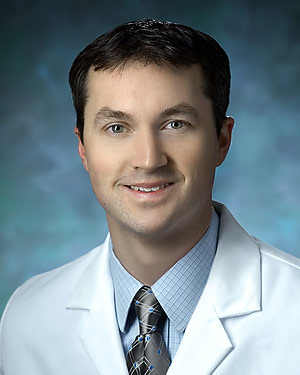-
Michael Joseph Blaha, M.D., M.P.H.

- Director of Clinical Research, Ciccarone Center for the Prevention of Cardiovascular Disease
- Professor of Medicine
Primary Location: Johns Hopkins Medicine - Green Spring Station, Lutherville, MD
-
Oscar Cingolani, M.D.

- Director, Hypertension Program
- Associate Director, Coronary Care Unit
- Osler Internal Medicine Faculty (Thayer Firm)
- Associate Professor of Medicine
Primary Location: The Johns Hopkins Hospital (Main Entrance), Baltimore, MD
Hypertension
Hypertension, sometimes called high blood pressure, is a condition in which the force of blood against the artery walls is too high. When unmanaged, it can lead to heart attack, stroke, and heart and kidney failure. It’s called the silent killer because hypertension often doesn’t have any symptoms until your organs are affected or give up.
Johns Hopkins researchers are conducting clinical research to advance the science of diagnosing and treating hypertension. They’re also using precision medicine, which focuses on a patient’s genetic makeup, as well as specific studies to provide individualized care. Since most treatments are based on clinical trials with thousands of patients, treatment can be generalized and not optimized for a specific patient.
An example of individualized medicine is the way blood pressure is measured. Usually, blood pressure is measured in the arms, but in some patients, the blood pressure right outside the heart (i.e., in the aorta) is different. With new imaging technology, they are determining the blood pressure at the root of the aorta, to better treat patients with high blood pressure that could lead to hypertension.
It turns out melatonin may be good for more than a good night’s sleep. Johns Hopkins researchers are studying the effect of melatonin in preventing cardiac arrhythmias in patients undergoing cardiac surgery. Since hypertension is a common precursor to arrhythmias, researchers want to intervene before these occur. Arrhythmias, as well as kidney failure, can also occur after cardiac surgery and have been associated with an increase in hospital length of stay, overall hospital costs, worsening clinical condition and higher rates of death.
Newer research indicates that inflammation is a key contributor in this setting, and melatonin may help. Melatonin, a hormone your body naturally makes, is effective as an antioxidant. Recent studies have shown that it may be protective in heart attacks and decrease blood pressure during nighttime. New research will be focusing on higher melatonin doses in certain patients whose blood pressure stays elevated at night.
Related Articles & Press Releases
- The Curious Case of the ‘Nervous Heart’
- 5 Heart Facts That May Surprise You
- Heart Health: Answers From Cardiologist Dr. Michael Blaha
- Risk Factors for Heart Disease: Don't Underestimate Stress
- The Heart Test You May Need—but Likely Haven’t Heard of
- High Coronary Calcium Score May Signal Increased Risk of Cancer, Kidney and Lung Disease
